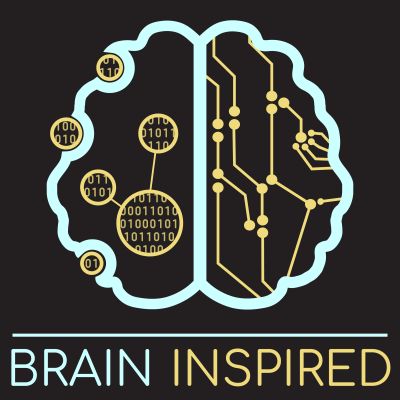Neuroscience and artificial intelligence work better together. Brain inspired is a celebration and exploration of the ideas driving our progress to understand intelligence. I interview experts about their work at the interface of neuroscience, artificial intelligence, cognitive science, philosophy, psychology, and more: the symbiosis of these overlapping fields, how they inform each other, where they differ, what the past brought us, and what the future brings. Topics include computational neuroscience, supervised machine learning, unsupervised learning, reinforcement learning, deep learning, convolutional and recurrent neural networks, decision-making science, AI agents, backpropagation, credit assignment, neuroengineering, neuromorphics, emergence, philosophy of mind, consciousness, general AI, spiking neural networks, data science, and a lot more. The podcast is not produced for a general audience. Instead, it aims to educate, challenge, inspire, and hopefully entertain those interested in learning more about neuroscience and AI.
https://braininspired.co/series/brain-inspired/
BI 056 Tom Griffiths: The Limits of Cognition
I speak with Tom Griffiths about his “resource-rational framework”, inspired by Herb Simon's bounded rationality and Stuart Russel’s bounded optimality concepts. The resource-rational framework illuminates how the constraints of optimizing our available cognition can help us understand what algorithms our brains use to get things done, and can serve as a bridge between Marr’s computational, algorithmic, and implementation levels of understanding. We also talk cognitive prostheses, artificial general intelligence, consciousness, and more.
- Visit Tom's Computational Cognitive Science Lab.
- Check out his book with Brian Christian, Algorithms To Live By.
- Some of the papers we discuss or mention:
- Rational Use of Cognitive Resources: Levels of Analysis Between the Computational and the Algorithmic.
- Resource-rational analysis: understanding human cognition as the optimal use of limited computational resources.
- Data on the mind - the data repository we discussed briefly
- A paper that discusses it: Finding the traces of behavioral and cognitive processes in big data and naturally occurring datasets.
